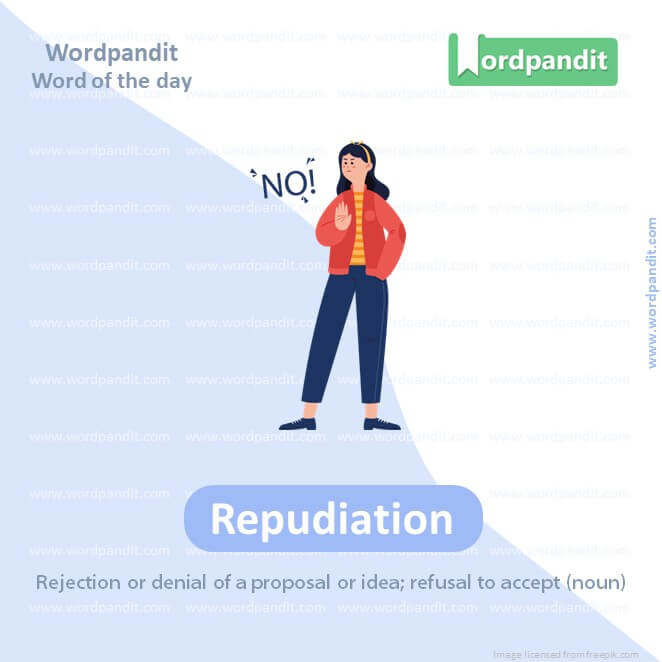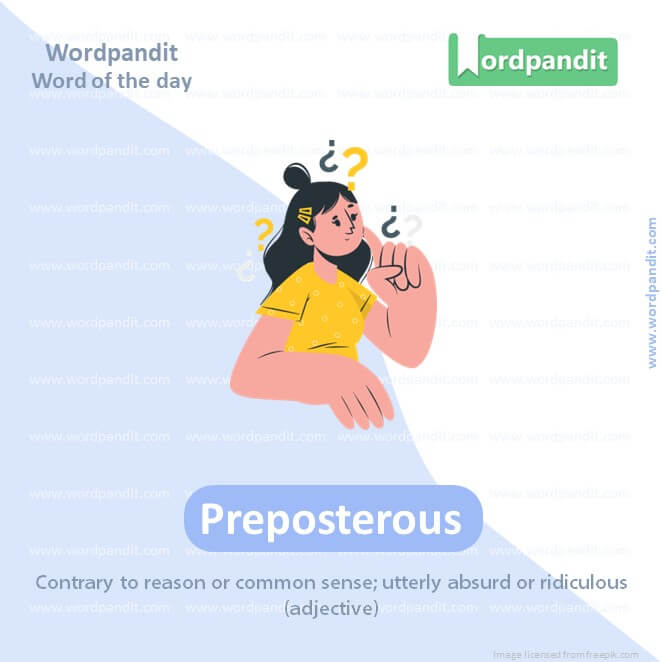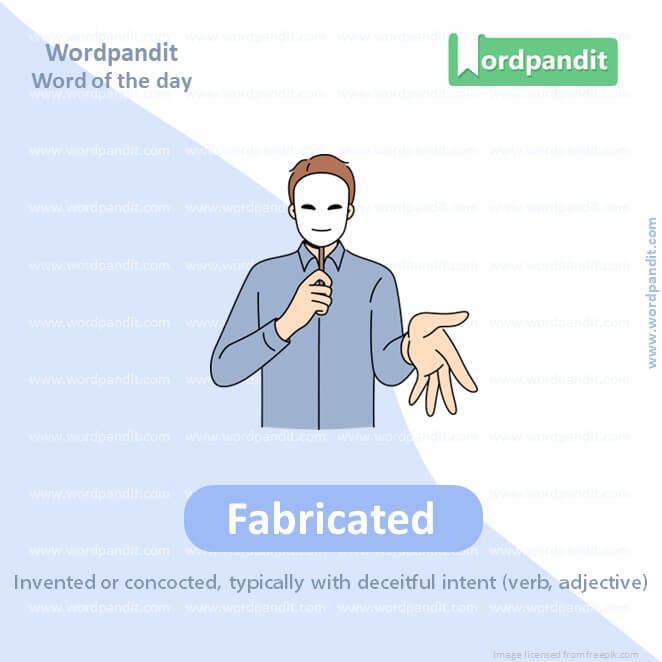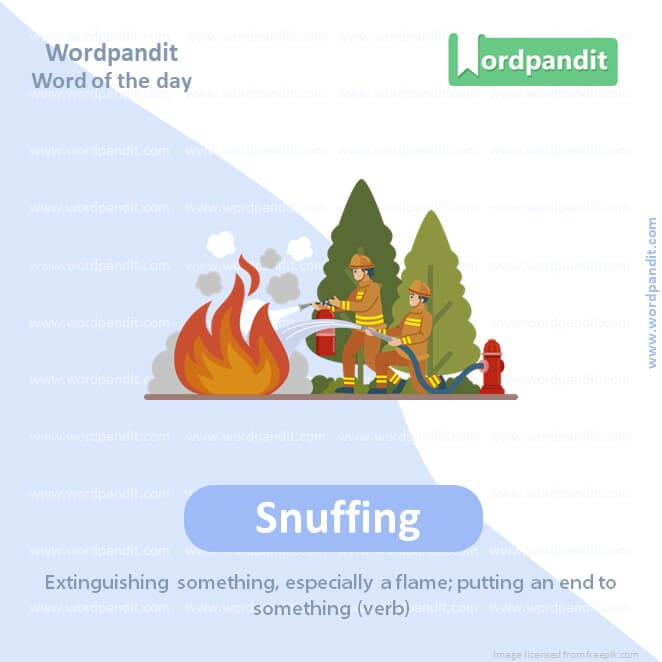Daily Vocabulary Words: List of Daily Used Words in Leading International Newspapers
Hi there. Welcome to this special section @ Wordpandit.
Our endeavour here is very simple: to highlight important daily vocabulary words, which you would come across in leading newspapers in the country. We have included the following newspapers in our selection:
• The New York Times
• The Washington Post
• Scientific American
• BBC
• The Guardian
• Psychology Today
• Wall Street Journal
• The Economist
We are putting in extensive work for developing your vocabulary. All you have got to do is be regular with this section and check out this post on a daily basis. This is your repository of words that are commonly used and essentially, we are posting a list of daily used words. Hence, this has significant practical application as it teaches you words that are used commonly in leading publications mentioned above.
Visit the website daily to learn words from leading international newspapers.
WORD-1: Embedded
CONTEXT: There’s a subtle but important legal point embedded here as well. As Pan noted, the interchange revealed an inherent weakness in Trump’s argument.
SOURCE: Washington Post
EXPLANATORY PARAGRAPH: Embedded is when something is stuck inside something else and becomes a part of it. Imagine a sticker stuck on a notebook – it’s embedded on the cover.
MEANING: Fixed firmly and deeply in a surrounding mass; implanted (verb, adjective).
PRONUNCIATION: em-bed-ed
SYNONYMS: Implanted, Inserted, Inlaid, Entrenched, Ingrained, Set, Buried
USAGE EXAMPLES:
1. The spy was embedded in the organization for years.
2. She had a splinter embedded in her finger.
3. Embedded journalists report directly from conflict zones.
4. The software has embedded security features.
WORD-2: Impeachment
CONTEXT: New York criminal investigation, that Trump enjoyed only “temporary presidential immunity,” while in office; in the second impeachment trial, that Trump could be criminally charged and so didn’t need to be convicted.
SOURCE: Washington Post
EXPLANATORY PARAGRAPH: Impeachment is like when someone in a big job, like a President, is thought to have done something really wrong, and there’s a special process to see if it’s true.
MEANING: The process of charging a public official with misconduct (noun).
PRONUNCIATION: im-peech-muhnt
SYNONYMS: Accusation, Indictment, Prosecution, Charge, Arraignment, Censure, Allegation
USAGE EXAMPLES:
1. The impeachment of the president was a major event in the country’s history.
2. The official faced impeachment for corruption.
3. Impeachment proceedings were initiated by the legislature.
4. The threat of impeachment loomed over the politician.
WORD-3: Flickered
CONTEXT: The needles have flickered but not moved much for over a year.
SOURCE: The Guardian
EXPLANATORY PARAGRAPH: Flickered is like when a light or flame moves quickly and doesn’t stay steady. It’s like watching a candle flame dance when there’s a breeze.
MEANING: Shone unsteadily or intermittently; moved lightly and swiftly (verb).
PRONUNCIATION: flik-erd
SYNONYMS: Fluttered, Flashed, Glinted, Wavered, Twinkled, Sparkled, Quivered
USAGE EXAMPLES:
1. The candlelight flickered in the dark room.
2. Her smile flickered for a moment.
3. Hope flickered in his heart despite the challenges.
4. The screen flickered before turning off.

WORD-4: Repudiation
CONTEXT: That doesn’t make his method infallible, but its repudiation has proved to be a reliable route to defeat.
SOURCE: The Guardian
EXPLANATORY PARAGRAPH: Repudiation is like saying “No, I don’t agree with this” or “I won’t follow this.” It’s like firmly saying no to something you don’t believe in or accept.
MEANING: Rejection or denial of a proposal or idea; refusal to accept (noun).
PRONUNCIATION: re-pew-dee-ay-shun
SYNONYMS: Rejection, Denial, Disavowal, Refusal, Disowning, Renouncement, Dismissal
USAGE EXAMPLES:
1. His statement was a strong repudiation of the allegations.
2. The policy was met with repudiation from the public.
3. She expressed her repudiation of the outdated practices.
4. The repudiation of the agreement caused controversy.
WORD-5: Perversion
CONTEXT: It is especially so when the pitch is skewed by a cultural habit of treating Conservative rule as Britain’s default setting – the norm from which Labour is a deviation, tending to perversion.
SOURCE: The Guardian
EXPLANATORY PARAGRAPH: Perversion is when something normal or good is changed in a bad or wrong way. It’s like taking a fun game and making it unfair.
MEANING: The alteration of something from its original course, meaning, or state to a distortion or corruption of what was first intended (noun).
PRONUNCIATION: per-ver-zhun
SYNONYMS: Distortion, Corruption, Twisting, Misrepresentation, Warping, Alteration, Depravity
USAGE EXAMPLES:
1. The dictator’s rule was seen as a perversion of justice.
2. The novel depicts the perversion of an idealistic young man.
3. His actions were a perversion of the team’s values.
4. The perversion of the original plan led to its failure.
WORD-6: Averting
CONTEXT: The exceptional quality of Blair’s record is the straw at which Rishi Sunak clutches in hope of averting electoral catastrophe.
SOURCE: The Guardian
EXPLANATORY PARAGRAPH: Averting is like quickly turning away or preventing something bad from happening. It’s like closing your eyes to not see something scary.
MEANING: Turning away or preventing something undesirable (verb).
PRONUNCIATION: uh-vert-ing
SYNONYMS: Avoiding, Preventing, Dodging, Evading, Eluding, Warding off, Deflecting
USAGE EXAMPLES:
1. He averted his gaze from the unpleasant scene.
2. The crisis was averted with quick thinking.
3. She averted a potential accident by driving cautiously.
4. The government took steps in averting the economic downturn.

WORD-7: Preposterous
CONTEXT: Pleading for continuity in volatile times is probably the best campaign available to Sunak, which is to say the only one that isn’t preposterous given that his party has been in power for the past 14 years.
SOURCE: The Guardian
EXPLANATORY PARAGRAPH: Preposterous is something that is really silly or doesn’t make sense. It’s like saying a tiny ant could carry an elephant.
MEANING: Contrary to reason or common sense; utterly absurd or ridiculous (adjective).
PRONUNCIATION: pre-pos-ter-us
SYNONYMS: Absurd, Ridiculous, Ludicrous, Outrageous, Laughable, Foolish, Bizarre
USAGE EXAMPLES:
1. The idea of flying cars still seems preposterous to many.
2. His excuse for being late was so preposterous that no one believed him.
3. The plot of the movie was preposterous but entertaining.
4. They laughed at the preposterous suggestion.

WORD-8: Fabricated
CONTEXT: The relevance to today’s circumstances is tenuous but not entirely fabricated.
SOURCE: The Guardian
EXPLANATORY PARAGRAPH: Fabricated means making up a story or a fact that is not true. It’s like telling a make-believe story and saying it really happened.
MEANING: Invented or concocted, typically with deceitful intent (verb, adjective).
PRONUNCIATION: fab-ri-kay-tid
SYNONYMS: Falsified, Invented, Manufactured, Concocted, Contrived, Forged, Made-up
USAGE EXAMPLES:
1. The evidence was completely fabricated.
2. He fabricated a story to explain his absence.
3. The journalist was accused of fabricating the interview.
4. The accusations against her were later found to be fabricated.

WORD-9: Snuffing
CONTEXT: There will be no premature victory rally like the one that Kinnock addressed in Sheffield the week before polling, which has entered Westminster folklore as a parable of vote-snuffing hubristic grandiosity.
SOURCE: The Guardian
EXPLANATORY PARAGRAPH: Snuffing is like putting out a candle by pinching or covering it, so it stops burning. It’s like stopping the candle flame suddenly.
MEANING: Extinguishing something, especially a flame; putting an end to something (verb).
PRONUNCIATION: snuf-ing
SYNONYMS: Extinguishing, Putting out, Smothering, Quenching, Dousing, Stifling, Squelching
USAGE EXAMPLES:
1. She was snuffing out the candles after the party.
2. The rain was snuffing out the last of the campfire.
3. He was known for snuffing out controversies quickly.
4. The new law aimed at snuffing out corruption.
WORD-10: Retreading
CONTEXT: Wariness of retreading old errors gives Starmer’s approach to the election a ponderous gait, which critics interpret as morbid timidity and supporters identify as judicious pace.
SOURCE: The Guardian
EXPLANATORY PARAGRAPH: Retreading is like fixing or renewing something so it can be used again. It’s like giving an old tire a new tread so it works like new.
MEANING: Putting a new tread on a worn tire; renewing or revitalizing something (verb).
PRONUNCIATION: ree-tred-ing
SYNONYMS: Refurbishing, Renewing, Restoring, Rejuvenating, Overhauling, Refreshing, Revamping
USAGE EXAMPLES:
1. The company specializes in retreading old tires.
2. The show is a retreading of a classic tale.
3. He’s considering retreading his career path.
4. Retreading the old policy didn’t yield the expected results.
Vocabulary Grammar
The journey of language mastery is a thrilling blend of words and structure, often referred to as ‘vocabulary grammar’. These critical components of any language work hand in hand to facilitate meaningful communication. However, embracing ‘vocabulary grammar’ requires a nuanced understanding and a strategic learning approach.
The initial step towards understanding ‘vocabulary grammar’ is to study the functionality of words in a sentence. Grammar holds the key to how vocabulary is structured in language. Therefore, observe how words change or influence meaning when placed differently in a sentence.
Leveraging diverse resources is a great way to grasp ‘vocabulary grammar’. Engage with a range of reading materials, audio-visual resources, and interactive language apps. This offers genuine exposure to ‘vocabulary grammar’ in real-world contexts and enhances comprehensive learning.
While learning ‘vocabulary grammar’, it’s important to see vocabulary and grammar as interconnected. Understanding how different parts of speech function can help in the effective usage of vocabulary. Try creating your own sentences using new vocabulary following certain grammatical rules to reinforce learning.
Revision holds its due significance in mastering ‘vocabulary grammar’. Regular review of learnt grammar rules and vocabulary ensures long-term retention and bolsters understanding. Use techniques like spaced repetition to make your review sessions more effective.
Lastly, practicing ‘vocabulary grammar’ is key to cementing your knowledge. Whether it is through writing exercises or conversing in the language, practicing allows you to apply ‘vocabulary grammar’ in a practical context and aids in accurate language use.
In conclusion, understanding ‘vocabulary grammar’ calls for conscious observation, diversified resources, interconnected learning, regular revision, and relentless practice. As you navigate this path, you will see ‘vocabulary grammar’ like two sides of the same coin, both essential to the value it holds in the wealth of language learning.













